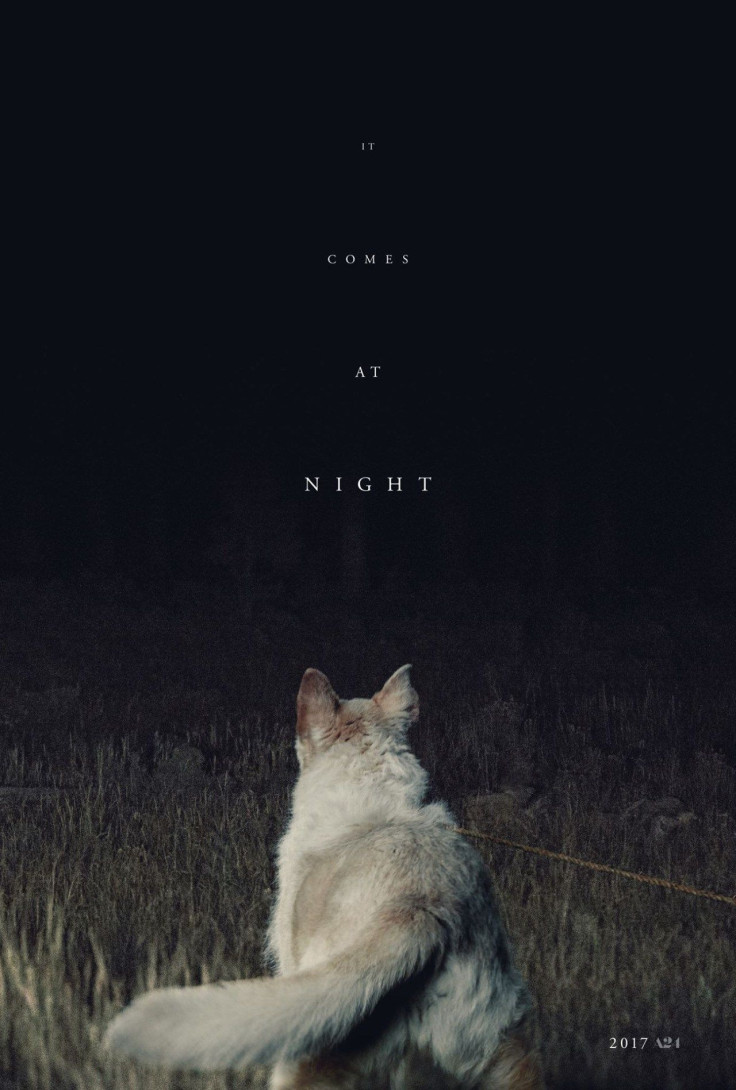Trey Edward Shult’s contained horror film It Comes At Night released yesterday. The film is about a family that is surviving in their house in the woods as a highly contagious and horrifying plague destroys the world. This is a sparse contained film where we see nothing of that outside world — all we know is that the characters are terrified of both the disease and of other desperate people avoiding it. The film opens with the killing and disposing of an infected member of the family. From then on, we know the stakes of this disease and we know what they are willing to do to stay safe. When a stranger arrives at their house, their family unit will be put to the test.
Gamers will note that the aesthetic and nature of the world feels extremely akin to Naughty Dog’s The Last of Us. In both worlds, the nature of the threat is well known to the characters, we don’t have lengthy debates over whether or not to kill an infected loved one. We just have bleak survival. Aesthetically, the two works feel akin, down to clothing and world design. If someone told me that this was intended to be set in the woods in the world of The Last of Us, I wouldn’t bat an eyelash. This may seem like great news to some, but the film is missing a key ingredient that raises The Last of Us above the level of oppressively bleak survival narrative. I’ll be giving my spoiler ridden thoughts below so be warned.
It is a little misleading to market the film as a horror film, as any intrepid viewer will gather early on that the only real moments of horror are the lengthy dream sequences experienced by the protagonist Travis played by 22-year-old Kelvin Harris Jr. I would more accurately call the film a thriller, as it is really about two families, who have learned to do anything to survive, being forced to live in close proximity to each other. While the threat from the outside is ever present, it is the threat from within that will tear these people apart.
It Comes At Night is newest in a line of contained horror films distributed A24, though this one was produced by the company and not merely distributed. Like The Witch and Green Room before it, It Comes At Night is extremely contained, set in and around one location. To me, the film feels like A24 leaning in too far to what made their previous efforts successful. This film is bleak, to the extent that it makes The Witch feel like a romp in the park. The droning sparse score almost never lets up and there is only one moment in the film where you see anyone having a good time, and it is extremely brief and feels ad-libbed by the actors.
Now there’s nothing wrong with a film about people pushed so far to the edge that they become machine-like, but if that is what you’re going to do, then you must work that much harder to make sure the audience is invested in their survival. What ultimately bothered me most about the film was that it takes for granted that we will care about these families when the filmmaking gives us absolutely no reason to. To briefly return to The Last of Us as a counterpoint, that world was just as bleak, but we cared deeply about the narrative because of the complicated, touching relationship between Joel and Ellie. It Comes At Night borrows the aesthetics and dangers of that world but gives us nothing to care about and no one to root for. Ultimately, it makes the film feel as mechanical as the characters within it have become.
Another problem with the film is in the structure. This is a story about two desperate families, pushed into tight quarters with each other and their increasing willingness to destroy the other in an attempt to preserve their own. Honestly, I’m on board for that. It is a concept that could lead to many dramatic scenes and moments. Unfortunately, that is not what the actual film is. Instead, the film slowly methodically plants many seeds that could lead to their distrust of each other, but then ignores them all and pushes them to the brink with an anti-deus ex machina turn. Once the event that breaks the families apart happens, you realize it has nothing to do with anything that has come before and it could have happened at any point in the film and played out the exact same way. It makes you wonder: why did I watch all this? It would be as if there was a film about a legal case and we slowly see new evidence come to light and as we build to the verdict, the court house burns down. It may be interesting to see what people do in a burning court house, but nothing that came before led to it in any meaningful way.
Ultimately, I’m a little bummed about the film because I love the grounded aesthetic, and how contained it is and as I mentioned, the general concept is great. I just wish the film had made use of that concept. What did you guys think of It Comes At Night?

















